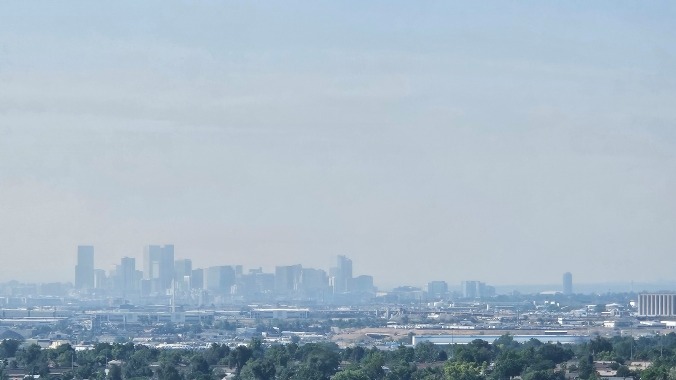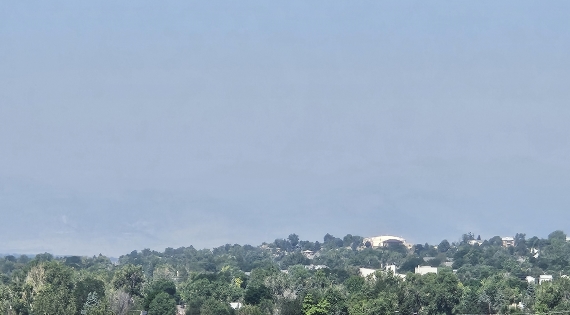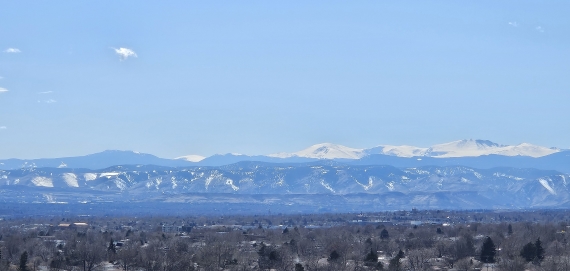You Can Taste the Air in Fire Country
Photo by Author
I am writing this from just outside Denver, an hour drive southeast of Lyons, which was just evacuated due to the growing Alexander Mountain fire. Smoke has filled the air around Colorado’s capital city, and it has mostly obscured the mountains that famously form the backdrop to our skyline.
The air has a crunch to it. I can feel something akin to a small pebble grind between my teeth every time I clench my jaw, and it has a distinct taste. My brain is under attack by my senses, as my nose smells something wonderous and comforts it with the crackle of a campfire, while everything else in my body alerts it to the coming apocalypse.
This is nothing new for us Coloradans. Fire season has always been a feature of our summers, but like everything else impacted by climate change, its intensity has skyrocketed. In the last five years I have had to adapt to a life which accepts the reality that going outside and breathing the air for days or weeks on end “can pose serious, immediate risks to your safety and health” according to the United States Environmental Protection Agency. I have stopped walking my dogs at certain hours, as the Air Quality Index now informs more of my summer days than weather forecasts do, and countless others across our outdoorsy state are adjusting to a world where one of the building blocks of life routinely becomes hostile to it.
The West is in the midst of a “megadrought” that is the worst in 1,200 years, and according to Ann Willis, a researcher at the Center for Watershed Sciences at the University of California at Davis, “There’s no good news for the foreseeable future, for the next few decades. Fundamentally addressing climate change is the ultimate answer. … If we don’t, then what we’re really seeing is just preamble to an even more extreme and catastrophic set of conditions.”
-

-

-

-

-

-

-

-

-

-

-

-

-

-

-

-

-

-

-

-

-

-

-

-

-

-

-

-

-

-

-

-

-

-

-

-

-

-

-

-

-

-

-

-

-

-

-

-

-

-

-

-

-

-

-

-

-

-

-

-

-

-

-

-

-

-

-

-

-

-

-

-

-

-

-

-

-

-

-

-

-

-

-

-

-

-

-

-

-

-

-

-

-

-

-

-

-

-

-

-

-

-

-

-

-

-

-

-














































































































